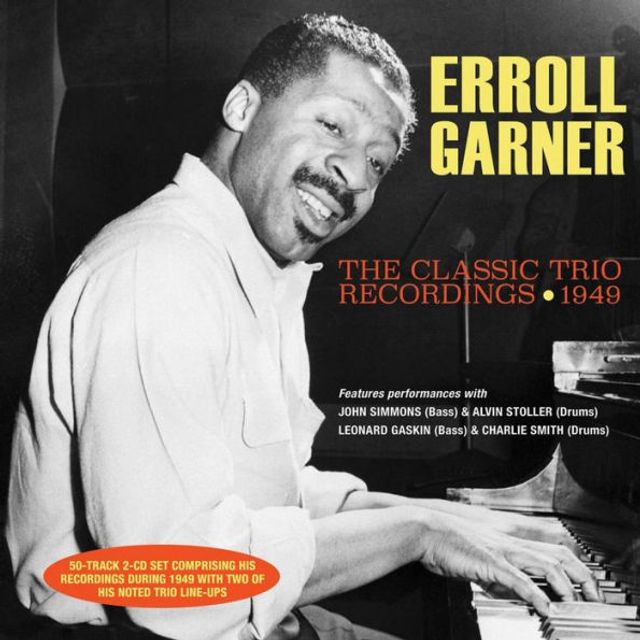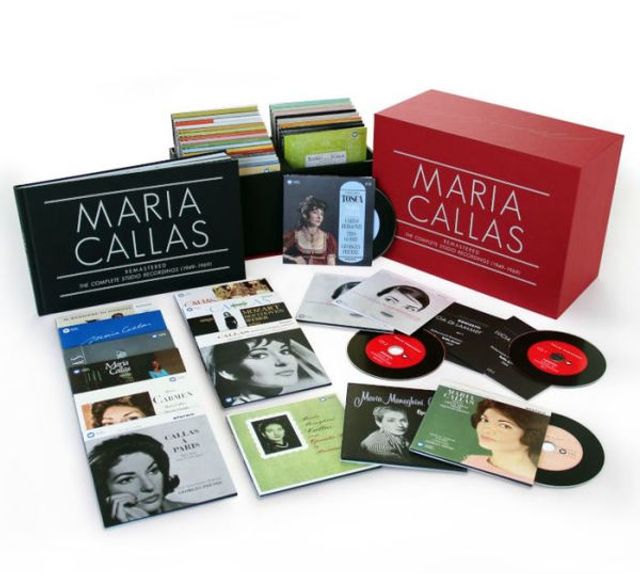Home
Important Recordings 1934-1949
Barnes and Noble
Important Recordings 1934-1949
Current price: $29.99


Barnes and Noble
Important Recordings 1934-1949
Current price: $29.99
Size: OS
Loading Inventory...
*Product information may vary - to confirm product availability, pricing, shipping and return information please contact Barnes and Noble
JSP
's four-CD
Leadbelly
box is an appropriately massive monument to a man whose power and intensity sometimes threatened to overwhelm the recording technology of his day. Ninety-six sides skim the surface of his prolific output during the last 15 years of
Huddie Ledbetter
's life, beginning with a selection from the
Lomax
field recordings cut during the summer of 1934 at the Louisiana State Penitentiary in Angola, and ending with an excerpt from a live concert at the University of Texas in Austin six months before his death in 1949. Forty-three examples from the
Library of Congress
sessions skim the surface of his sizable contribution to that archive, and are followed by a judicious selection of records he cut for seven commercial labels during a period when his brusque delivery was generally considered too brash and bracing for the average American listener. For a potent distillation of the man's approach to life and music, go directly to the hypnotically paced
"Leaving on the Morning Train Blues"
(disc 1 track 19), a nearly-ten-minute narrative that develops into
Ledbetter
's definitive statement on the blues as a possessing entity.
Virtually every facet of
's repertoire is solidly represented here. He was an accomplished storyteller who specialized in folk ballads and ditties, as well as topical pieces inspired by current events and social protest songs that helped to fuel the emerging modern civil rights movement. There are love songs and work songs, many of them tracing back to slavery, plantations, prisons, and chain gangs.
's
Bluebird
,
Asch
, and
Capitol
recordings include collaborations with the harmonizing
Golden Gate Quartet
, guitarist
Josh White
, and blues harpist
Sonny Terry
. While in Hollywood in 1944, he recorded for
with Western swing sideman
Paul Mason Howard
, fresh from his tenure with
Tennessee Ernie Ford
and heard here on autoharp. A 1946 session for the east coast
Disc
label has him backed by
Terry
Brownie McGhee
, New Orleans bassist
Pops Foster
, and a nearly inaudible
Willie "The Lion" Smith
.
's own multi-instrumentalism is documented by his concertina (
"John Hardy"
and
"Corn Bread Rough"
), barrelhouse piano (
"Eagle Rock Rag"
) and tap dancing (
"Green Corn"
). From the very opening of
"Western Cowboy,"
's voice has an elemental, penetrating quality that wells up throughout the entire collection. Note that
"In New Orleans"
is better known as
"House of the Rising Sun,"
"Gallis Pole"
is the taproot of the popular
Led Zeppelin
version and a later visitation by
Alvin Youngblood Hart
. For even greater immersion in
's music, try
Document
's multi-volume survey which digs deeper into the
strata. There you will find (on Vol. 4, DOCD 5594) the original 1935 two-part realization of
"Whoa Back Buck (Whoa Goddamn)",
the exciting prologue to the version he recorded with the
in June 1940. In this way,
box becomes a portal through which the rest of his legacy is clearly discernable. ~ arwulf arwulf
's four-CD
Leadbelly
box is an appropriately massive monument to a man whose power and intensity sometimes threatened to overwhelm the recording technology of his day. Ninety-six sides skim the surface of his prolific output during the last 15 years of
Huddie Ledbetter
's life, beginning with a selection from the
Lomax
field recordings cut during the summer of 1934 at the Louisiana State Penitentiary in Angola, and ending with an excerpt from a live concert at the University of Texas in Austin six months before his death in 1949. Forty-three examples from the
Library of Congress
sessions skim the surface of his sizable contribution to that archive, and are followed by a judicious selection of records he cut for seven commercial labels during a period when his brusque delivery was generally considered too brash and bracing for the average American listener. For a potent distillation of the man's approach to life and music, go directly to the hypnotically paced
"Leaving on the Morning Train Blues"
(disc 1 track 19), a nearly-ten-minute narrative that develops into
Ledbetter
's definitive statement on the blues as a possessing entity.
Virtually every facet of
's repertoire is solidly represented here. He was an accomplished storyteller who specialized in folk ballads and ditties, as well as topical pieces inspired by current events and social protest songs that helped to fuel the emerging modern civil rights movement. There are love songs and work songs, many of them tracing back to slavery, plantations, prisons, and chain gangs.
's
Bluebird
,
Asch
, and
Capitol
recordings include collaborations with the harmonizing
Golden Gate Quartet
, guitarist
Josh White
, and blues harpist
Sonny Terry
. While in Hollywood in 1944, he recorded for
with Western swing sideman
Paul Mason Howard
, fresh from his tenure with
Tennessee Ernie Ford
and heard here on autoharp. A 1946 session for the east coast
Disc
label has him backed by
Terry
Brownie McGhee
, New Orleans bassist
Pops Foster
, and a nearly inaudible
Willie "The Lion" Smith
.
's own multi-instrumentalism is documented by his concertina (
"John Hardy"
and
"Corn Bread Rough"
), barrelhouse piano (
"Eagle Rock Rag"
) and tap dancing (
"Green Corn"
). From the very opening of
"Western Cowboy,"
's voice has an elemental, penetrating quality that wells up throughout the entire collection. Note that
"In New Orleans"
is better known as
"House of the Rising Sun,"
"Gallis Pole"
is the taproot of the popular
Led Zeppelin
version and a later visitation by
Alvin Youngblood Hart
. For even greater immersion in
's music, try
Document
's multi-volume survey which digs deeper into the
strata. There you will find (on Vol. 4, DOCD 5594) the original 1935 two-part realization of
"Whoa Back Buck (Whoa Goddamn)",
the exciting prologue to the version he recorded with the
in June 1940. In this way,
box becomes a portal through which the rest of his legacy is clearly discernable. ~ arwulf arwulf


















